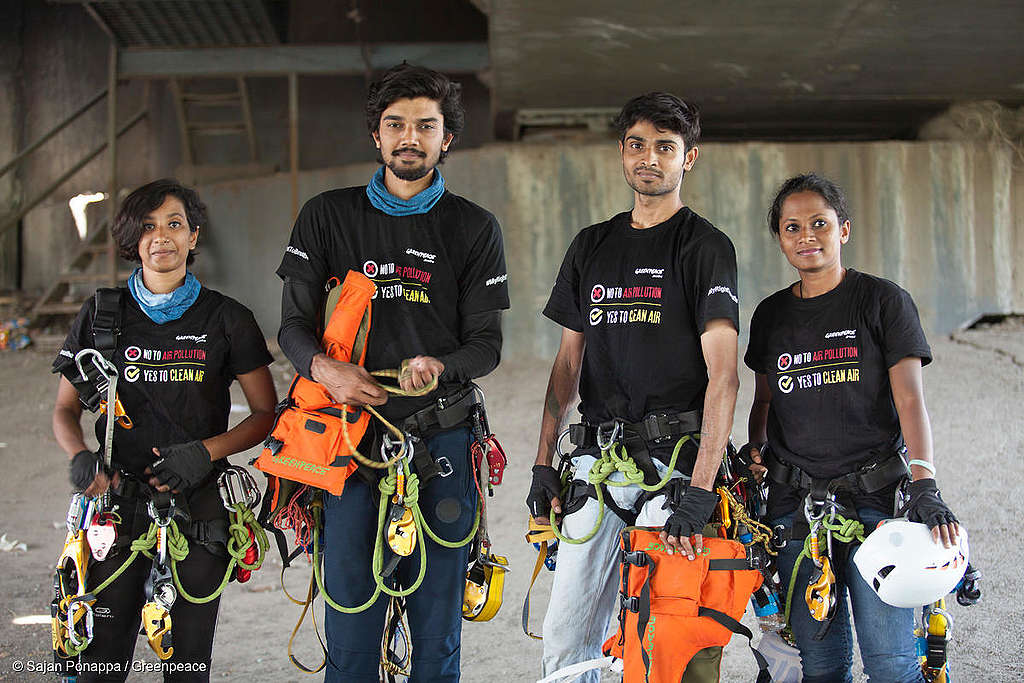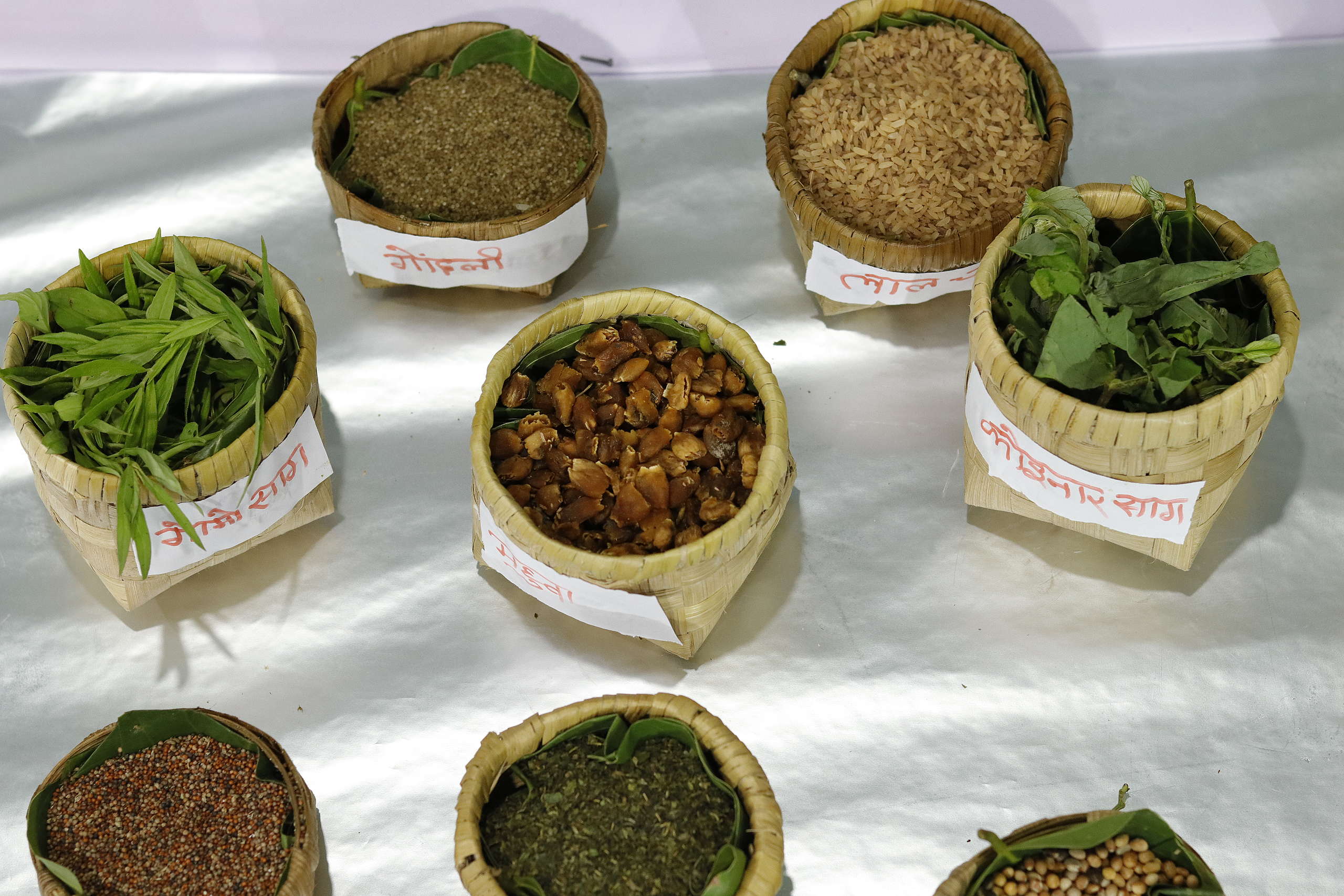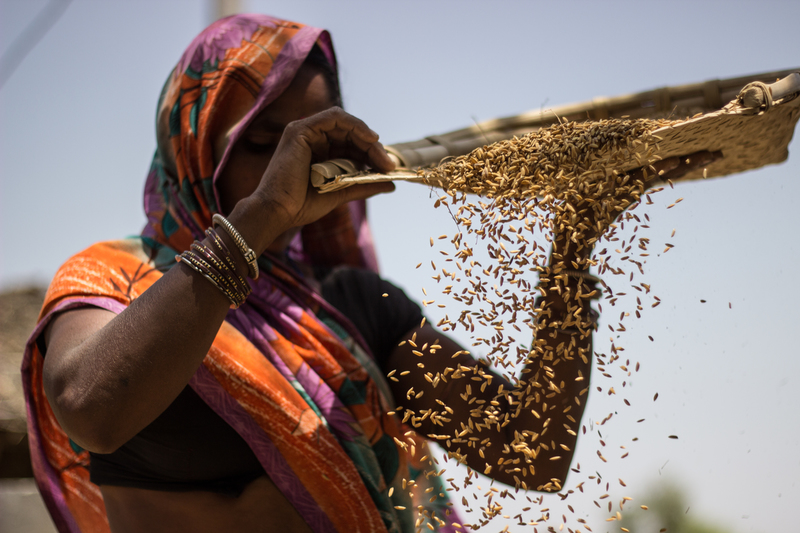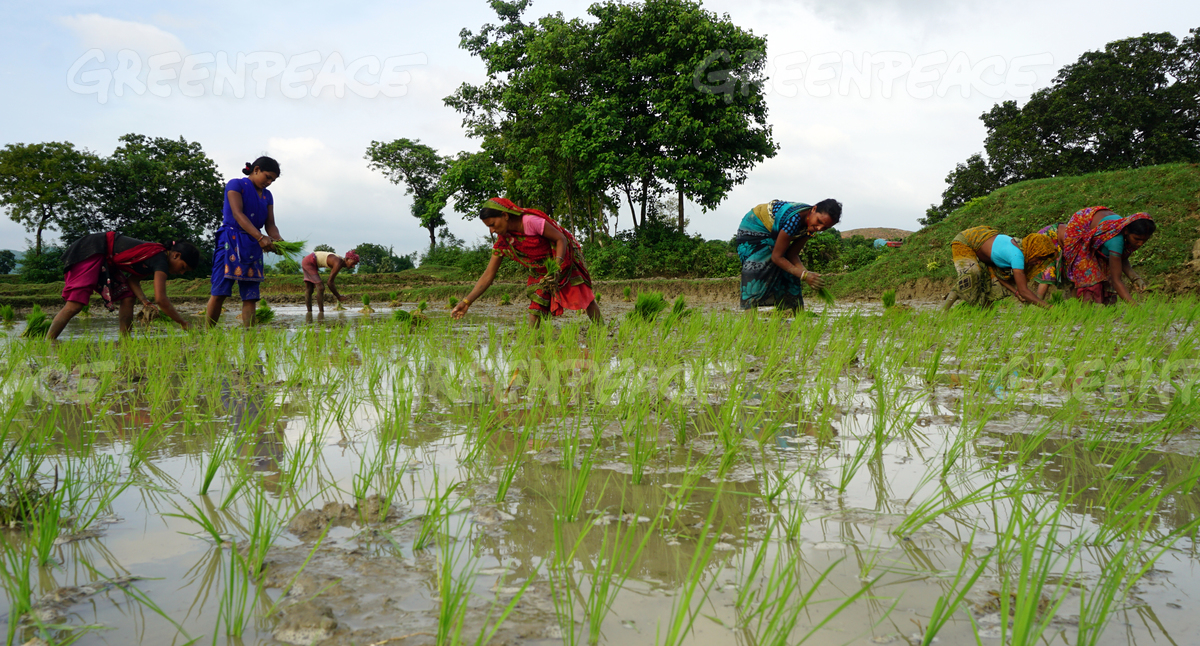Mandeep, 23, completed his graduation in political science from Punjab University in 2015 before he became regular assistant to his farmer father. His father Murari Choudhary owns 10 acre of land in Jogipur village in Patiala district, of which around 6 acres were occupied with wheat. His son, an active worker of SOI (Student Organisation of India), student wing of Shiromani Akali Dal, met me through a fellow reporter back in October, 2017. By the time Delhi had already started choking. Smog and Pollution was the new political discourse in Lutyens’ Delhi, however short-lived. Even the usually communal frenzied TV channels showed some sanity and held the regimes accountable.
One such evening amidst the political hullaballoo over dining table, Mandeep said, “Media persons are the ‘immediate intellectuals’ which they should not be.” Coming from a boy half their age, this pissed off senior journalists no end. And the discussions on stubble burning and Captain Amarinder’s inefficient administration halted suddenly. All Seasons’ Whisky is a trustworthy drink, was the next topic.
Mandeep was anguished on the tone and tenor of reporting. “Why aren’t media persons concerned about pollution throughout the year?,” he asked.
Mandeep had a number of reasons to be angry with media, the most prominent being the representation of rural India in the media. He wanted categorical and specific reporting on stubble burning for two reasons: first, it would push an urban debate on pollution and second, it would give urban space a moment to reflect on their lifestyles. He felt that unsustainable urban lifestyles which contribute to global climate change phenomenon 24/7, 365 days a year, should also feel the heat.
Later Mandeep explained his comment to me in person. He said, “This is not simply about burning of wheat or paddy straw. It’s about timing and non-viable options available to farmers.”
October is the time when paddy fields are harvested. Within three weeks of harvesting, wheat is sowed. This limited time gap is the major cause of stubble burning. Farming community believes that if paddy straw is not cleared from fields immediately, within three weeks of harvest or before sowing of wheat, it would hamper the growth of succeeding crop.
“It’s not like every farmer is burning the stubble. They too are concerned about pollution. I would say, more than Delhi-walas who wake up to pollution problems every Diwali season. Many farmers are collectively using zero tillage technology (via Happy Seeder Machines), where crop residue is mixed in the soil through the process known as mulching,” added Mandeep.
Mulching is further useful in preparing organic manure. However, Mandeep didn’t seem passionate about organic farming. He was more concerned about depleting groundwater and government’s inadequate intervention in ensuring minimum support price.
One of my senior colleagues Ishteyaque explained the reason why Mandeep seemed disenchanted by the idea of organic or ecological farming. He has been part of change in Kedia, Jamui, a small district in Bihar. Until few years ago, farmers in Kedia had faced the same agrarian challenge as those in different Indian states. A nudge to facilitate shift in approach was attempted through various rounds of discussions over months and finally, Kedia turned into a village of ‘ecological farming’.
Ecological farming can be a way to get away with stubble burning. Kedia’s farmers do not burn stubble; rather they use it as a resource to enhance organic carbon in the soil and improve its health. For speeding up the process of decomposition of the stubble, they use locally prepared concoctions such as Sheera, Jeevamrit and Amrit Pani. These concoctions are produced with locally available resources such as cattle urine and dung, besan, jaggery and leaves of some plants. Within a span of 45-60 days, paddy straw compost is ready to conserve nitrogen and nutrients back in the soil.
Such organic compost contains nitrogen, phosphorus and potassium. It helps in improving crop yield in the coming season but also increases organic carbon content in the soil which makes soil more water absorbent. Thus, also useful for ground water recharge.
Coming back to the Mandeep, his next question was, “Why do you people start fixing accountability of farmers before everyone else’s? Have you ever asked the state governments why they aren’t able to take concrete steps if they consider it a menace? What ‘bureaucratic disorders’ are the states going through?,” he asked.
I did not have any ‘convincing’ answer to his questions rather than just letting him know of the organizational setup I was working in. But his notion of urban-rural partisanship reminded me of a discussion where I had a chance to listen to the veteran environmentalist Chandi Prasad Bhatt. Bhatt talked about the political project of neo-liberal state.
“L-P-G (Liberalisation, Privatization and Globalization) policies have dismantled the very foundation of welfare states. Open market systems have brought in huge behavioural shifts between the market, state and public. While the corporations aligned with states have considered the atmosphere nothing more than dumping yards, they try fixing accountability of individuals,” said Chandi Bhatt during the discussion.
He further elaborated on the topic, “It’s great to try changing public attitude towards environment. But state cannot simply rely on normative behaviour shifts of the public. It would be noteworthy if the policies made by state reflect the environmental concern. You clear forests and give easy environmental clearances to corporates and then appeal to masses about planting sapling. These fooling tactics should be stopped.”
Chandi’s ‘jargon-free’ concerns were perfectly captured in a essay by Martin Lukacs. Lukacs is a columnist at The Guardian. In his essay, ‘Neoliberalism has conned us into fighting climate change as individuals’ he writes, “Neoliberalism’s celebration of competitive self-interest and hyper individualism, its stigmatization of compassion and solidarity, has frayed our collective bonds. The toxic, anti-social message Margaret Thatcher preached in 1980s England, “There is no such thing as society” has spread insidiously to India’s cities since the 1990s”.
Civil society’s response to Stubble burning
“It’s not like we don’t know the alternatives. We know it. We just need little support from people and the state,” reflected Mandeep calmly .
Punjab, Haryana and western Uttar Pradesh produce nearly 40 million tonnes of paddy straw annually. According to Centre for Research in Rural and Industrial Development (CRRID) data released in 2018, Punjab alone produces 22-23 million tonnes of paddy straw which is largely burnt. Burning is avoidable since paddy straw can be used for production of energy. Paddy straw helps in maintaining soil fertility. This crop residue can be an useful resource if states are willing to cooperate.
Sucha Singh Gill, teacher at Centre for Research in Rural and Industrial Development, Chandigarh elaborated on the alternative technologies to tackle stubble burning in September, 2018 edition of Economic and Political Weekly.
Gill points out four alternatives.
a.) Generation of Power through Power
b.) Production of cardboard and packing material
c.) Production of ethanol by fermentation
d.) Bio-compressed natural gas (CNG)
She further discusses the viability probabilities of each of them.
“The power generation technology using paddy straw could not become commercially viable business model due to the fact that it involved high costs of production with a tariff rate of 7.51 INR per unit. This tariff rate works out to be more than two times that of the actual average purchase rate of power at 3.50 per per unit in the open market.”
She argues that since electricity tariff rates of solar and wind energy are continuously falling, this makes production of thermal power from paddy straw financially unviable.
Production of ethanol from paddy straw is proposal by Hindustan Petroleum Corporation Limited, writes Gill. This is an estimate worth 600 crore. By the way, this is again a neo-liberal idea of ‘would-be’ state and private company’s nexus.
Punjab government has received several proposals to set up plants for bio-CNG that can act as a substitute natural CNG for all purposes. Private companies are again into it. A number of private companies are claiming that bio-CNG is cheaper by 10-15 rupees per kg than commercial natural CNG.
For me, such claims by the companies are ‘lollipop’ and distant from political realm. Just to give context: UPA government deregulated oil prices, i.e, prices would be decided according to international rates. Is this de-regulation not being regulated by state? Do oil prices fall under GST?
This gives a sense that states have all the solutions to stubble burning which includes private corporations and these options are being lobbied by corporations and researchers such as Gill. But the simplest of the procurements of seeder machines and push towards ecological agriculture is yet to be done. If Punjab government peep out of their own state, they would find perfect, viable and eco-friendly models such as Kedia which have done away with turned the menace into an opportunity. Moreover it is all about changing priorities and ensuring commitments to a sustainable future.
Rohin Kumar is a Food for life campaigner at Greenpeace India.
This post first appeared in Counter Currents.

This fragile Earth deserves a voice. It needs solutions. It needs change. It needs you.
Get Involved


